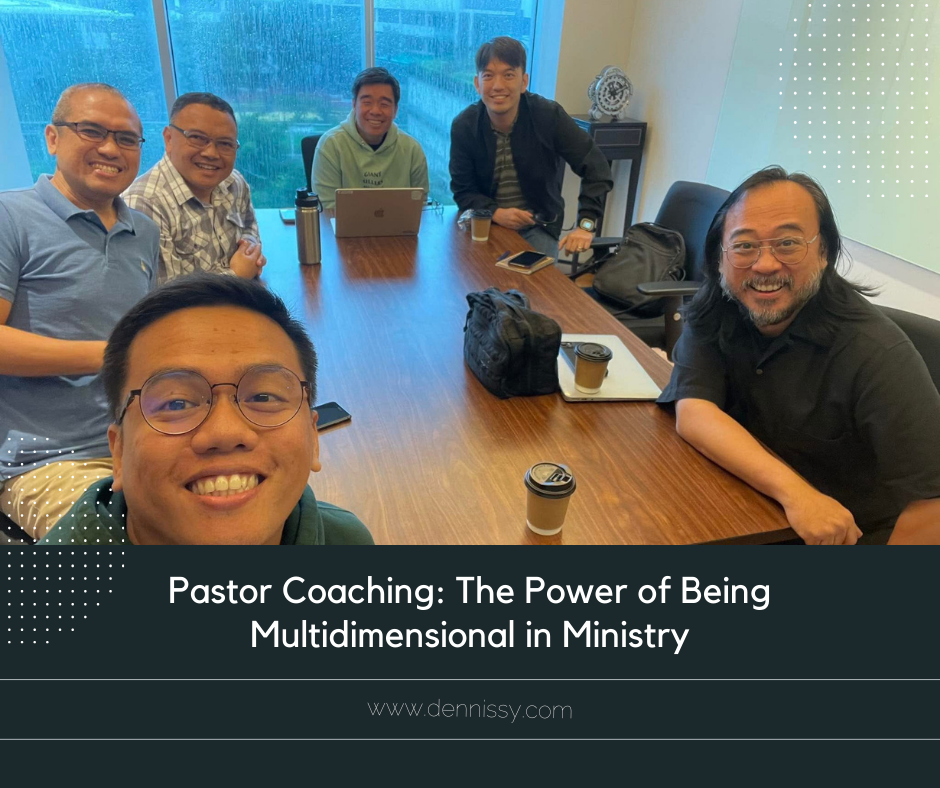“Be good at two things.” – Rory Sutherland
While this might sound simple, its implications for ministry are profound. Let’s explore why being excellent in multiple dimensions matters for pastors, particularly in preaching, discipleship, and organizational leadership.
Consider this example: A soldier who knows how to fight is good. A soldier who knows how to fight and is an expert in AI systems is even better. As warfare evolves, the combination of skills makes them indispensable.[1] The same is true in ministry. A pastor who excels in preaching is valuable. However, a pastor who can preach with power, lead a team effectively, or disciple others deeply becomes a transformative leader in the church.
The Challenge of One-Dimensional Ministry
Many pastors aim to be the best preacher, the most insightful discipler, or the most efficient administrator. While these are noble goals, focusing solely on one dimension can limit your impact. Churches don’t exist in a one-dimensional world. They need leaders who can help them grow in ways that address the complexities of their community and culture.
Imagine a pastor who preaches beautifully but lacks organizational skills to mobilize a congregation or struggles to connect with people on a personal level. Their ministry may inspire from the pulpit but struggle to translate into sustained growth and transformation. Similarly, a pastor who excels at administration but lacks depth in preaching or discipleship may manage well but fail to cultivate spiritual vitality.
The Power of Intersections
The real change happens at intersections—when diverse skills come together to create something unique and powerful. Let’s draw some parallels:
- Apple didn’t just make functional computers; they reimagined human desire. Steve Jobs emphasized the importance of connecting seemingly unrelated experiences to create innovation. Similarly, pastors who blend theological depth with real-world understanding and leadership skills can create transformative church environments.
- In his book WikiChurch, Pastor Steve Murrell emphasizes the importance of empowering others through discipleship, a principle that aligns with the idea of multidimensionality in pastoral leadership. Murrell writes, “The church grows not when the pastor does all the ministry but when the people are equipped to minister.” This concept underscores that pastors who develop skills in both leadership and discipleship can inspire and equip their congregations more effectively. By multiplying leaders through intentional discipleship, they create a culture of shared ministry that has a far-reaching impact.
When pastors develop multidimensionality, they become more than just leaders in one area. They become visionaries who inspire, equip, and lead their congregations in unique and impactful ways.
Pastors who cultivate a broad range of skills and experiences are better equipped to connect ideas and innovate in ministry. Preaching becomes richer when informed by organizational insights. Discipleship becomes deeper when approached with a leader’s perspective on growth and sustainability. Leadership becomes more inspiring when rooted in the truths of the Word.
Practical Steps for Pastors
- Embrace Lifelong Learning: Attend conferences, read widely, and seek mentors in areas outside your primary strength. If you’re a great preacher, learn about organizational leadership. If you excel in administration, dive deeper into theology.
- Seek Diverse Experiences: Volunteer in areas outside your comfort zone. Engage with different cultures and communities. These experiences broaden your perspective and enhance your ability to connect with others. This is also a good way to practice the first E of our discipleship process – to engage culture and community.
- Build Teams That Complement You: Recognize your strengths and weaknesses and surround yourself with people who bring different skills. A multidimensional team creates a multidimensional church.
- Integrate Skills for Greater Impact: Look for ways to connect your skills. For example, use your organizational leadership to structure discipleship programs or enhance sermon delivery.
In a world where many pastors might excel in a single area, the true difference lies in being multidimensional. What combination of experiences, skills, and perspectives makes your ministry unique? The goal is not perfection in every area but a deliberate effort to grow in multiple dimensions so your ideas, leadership, and ministry become impossible to replicate.
As you reflect on your pastoral calling, remember that God can have the most significant impact where your skills and experiences intersect.
[1] gapingvoid/mastery-isnt-enough?e=d9234741e7
